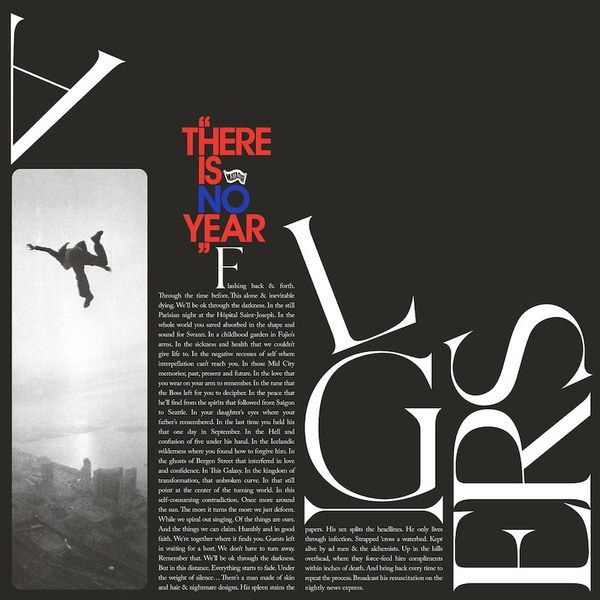Algiers dials back the intensity on ‘There Is No Year’
by Sean Gallipo
2020-01-24

Algiers
There Is No Year
Matador Records · January 17, 2020

Four months ago, Algiers, one of the most innovative rock outfits of the past decade, released perhaps their most off-the-wall song to date: a chaotic slam poetry track backed by an erratic jazz instrumental titled “Can the Sub_Bass Speak?” Combining all the elements that make the group great, from their genre-bending fluidity to the cunning wit of lead singer Franklin James Fisher, this free jazz statement was one of their most unique and acclaimed tracks to date. Therefore, it comes as no surprise that their newest album feels like a bit of a letdown. The project tones down all the musical elements of their past releases, but the unique sonic identity of the group coupled with Fisher’s impeccable lyricism is enough to make any full-length Algiers record a worthwhile listen regardless.
There Is No Year is the band’s third album since forming in Atlanta in 2012, and their first release since 2017. On their newest album, the band frequently swap out their industrial influences of their past work for groovier, more spacious beats that complement Fisher’s soulful delivery rather than creating a jarring contrast. Though the group’s chaotic sound is turned down a notch, the dark themes that frequently appeared on their first two albums persist. From the opening title track “There Is No Year,” all the way to the penultimate track, “Nothing Bloomed,” the band layers on apocalyptic motifs to create grim and occasionally barren soundscapes, bolstered by background instrumentals that seem suspiciously devoid of rhythm and noise. With less emphasis on unsettling instrumental combinations, the audience is forced to pay more attention to what the band says lyrically. Fisher kicks off the jazzy post-punk jam “Dispossession” by belting out, “run around, run away from your America / while it burns in the streets.” This song, seemingly about opposing tyranny and the struggle for power between authoritative figures and the general population, is unquestionably one of the signature moments on the record, with several instrumental shifts and unnerving vocal passages, all highlighted by Fisher’s exceptional delivery on each part of the song.
The only moment that surpasses the energy of “Dispossession” is the closing track “Void,” which displays levels of raw post-punk aggression that the group has rarely attempted. “Void” comes as a refreshing return to the band’s identity of crossing over between genres, incorporating a heavy garage rock influence that isn’t demonstrated on any of their previous songs, while expressing resentment at racism and affluence and once more suggesting violence looming on the horizon. Other lyrics reflecting hopelessness and ominous settings are found at nearly every corner on the record, such as the track “Wait For The Sound,” which contains perhaps the most stripped-back instrumental on the album and sounds downright miserable when combined with the opening lines, “the streets are raining fire / we’ll be gone now any day.” Though the album is undoubtedly the band’s least musically adventurous effort, the lyrical themes on the album remain as clear and consistent as ever.
Overall, the record is passable on every front and has some undeniable highlights; Algiers successfully executed all the desolate themes of the album and Fisher provided outstanding, varied vocal performances throughout the tracklist. However, with a band as musically exciting and groundbreaking as Algiers, there is an element of disappointment that comes with an album that fails to cover much new ground, which, fair or not, is only a result of the band’s past excellence. Regardless, There Is No Year is still a worthy addition to the discography of a band that undoubtedly still has much more to offer to the musical world.
